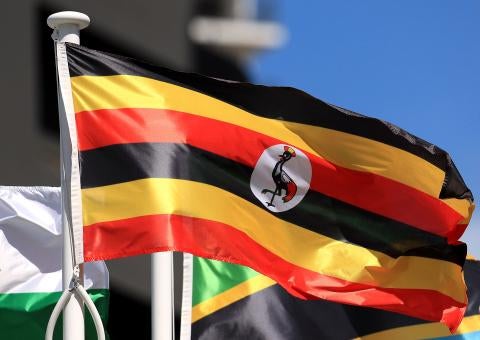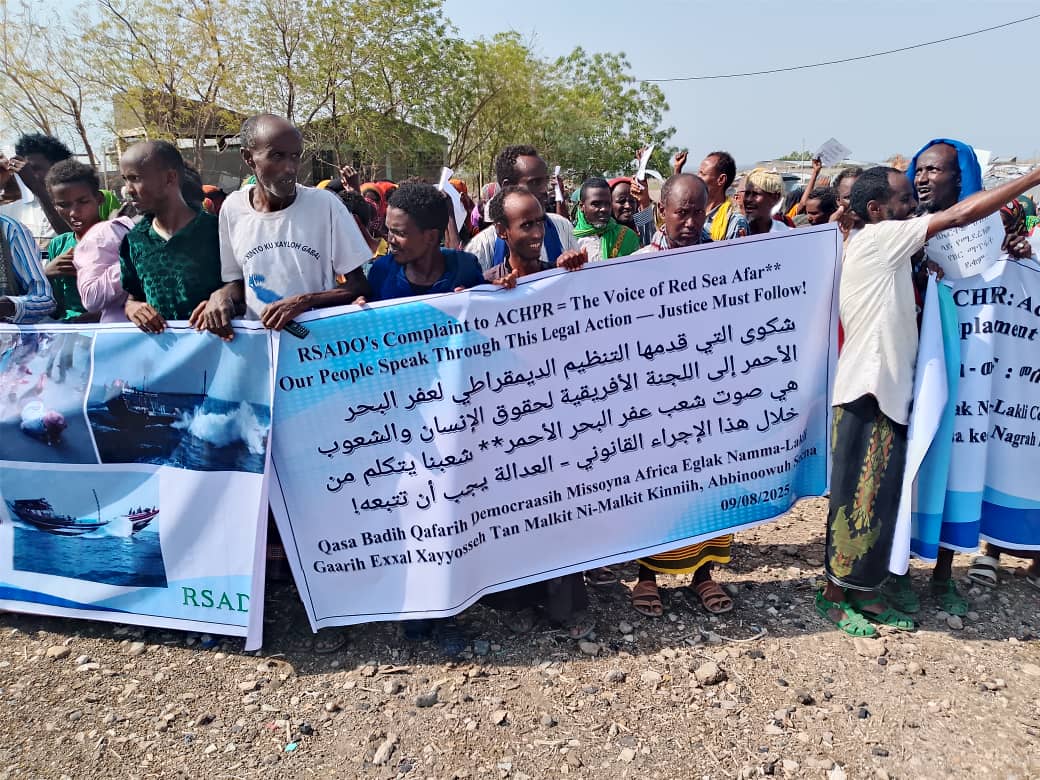BY TESFA-ALEM TEKLE & SUMUR TSEHAYE
The third interactive dialogue between Protection service providers (PSPs) and human rights defenders (HRDs) exiled in Uganda was held on Wednesday 22 February, 2023 in Kampala.
Hosted by DefendDefenders (the East and Horn of Africa Human Rights Defenders Project) the consultative meeting aimed to review the state of protection services for HRDs in exile in Uganda, and their resilience strategies.
In his opening remarks, Hassan Shire, Executive Director of DefendDefenders, recalled his own personal experience as an HRD in exile, and stressed a need for more protection support provision for exiled Human Right Defenders who are being vulnerable in both as HRDs and as refugees.
“I was one of those human rights defenders myself, forced into exile, and opted to stay within the region close to my country and continue defending the rights of others by helping to establish DefendDefenders and AfricanDefenders” he said.
“I am committed to ensuring that the struggle I faced will not be faced by others like me”
Mr. Shire called upon protection stakeholders including on the government, refugee-rights civil society organizations and development partners to review and rethink the current refugee protection policies to better protect human rights defenders exiled in Uganda.
Mr. Shire thanked Uganda for its hospitality for refugees under its open door policy towards refugees and noted that the government of Uganda must be credited for having some of the most favorable refugee-hosting policies in the world.
Per 2016 research, exiled and in limbo, DefendDefenders identified at least 350 HRDs from countries in the East and horn of Africa living in exile in Kenya, Uganda, and Rwanda alone.
However, Mr. Shire said the above stated figure is likely much higher at present.
“In the past two years, Uganda has continued to receive huge numbers of HRDs fleeing their countries to seek asylum and safety”
“We appreciate the government of Uganda for allowing the persecuted HRDs to get refugee in this beautiful country” he added.
He however said there still remains a lot to be done to ensure that exiled human rights defenders process and obtain requisite documentation in a fast and efficient manner to facilitate their transition to safety.
“For example, two asylum applications for human rights defenders recognized as refugees in Tanzania were rejected by the Office of the Prime Minister’s Directorate of refugees”
“In such cases, human rights defenders remain in limbo as their status is not clearly defined,” he noted.
He underscored DefendDefenders’ and AfricanDefenders’ mission is to ensure that HRDs in exile are “safe but not silent”
Mr. Shire noted that since the outbreak of the Covid-19 pandemic, the resulting economic crisis has increased the scope of work for human rights defenders living in exile as refugees and asylum seekers, which has in turn increased their insecurity and vulnerability to rights abuses.
“There is therefore a need for protection stakeholders from the state to civil society organizations, the United Nations High Commissioner for Refugees (UNHCR), other UN agencies, diplomatic missions, and non-governmental organizations to come together to ensure improved implementation of the legal and regulatory frameworks protecting human rights defenders exiled in Uganda,” Shire added.
Refugees Travel Documents
Mr. Shire also commended the Ugandan government for facilitating the issuance of Convention Travel Documents (CTD) which allows refugees to travel outside the host nation.
“There is an enhanced issuance of conventional travel document by the Ugandan government to the exiled HRD working groups”
“If you are entitled to obtain the travel document , you can now travel outside Uganda and the Office of Prime Minister will facilities it”
According to Mr. Shire, Ugandan authorities have taken progressive actions to implement the recommendations put forward from the two previous meetings between HRDs and protection service providers.
He also thanked partners including the Royal Dutch Embassy and Uganda Ministry of Foreign Affairs for its continuous support since the initial launch of DefendDefenders in 2005.
Dutch Embassy’s Note
Ms. Nona de Jonge, Representative of the Embassy of the Kingdom of Netherlands in Uganda, at the meeting said that human rights especially ensuring protection and promotion of the right of human rights defenders is a key a pillar of Dutch foreign policy.
She said, her government recognizes the strengthening mechanism of protecting HRDs and asserted they have been closely working closely with DefendDefenders to ensure “support and much-needed protection is available to HRDs that are forced to leave their country and seek refuge in Uganda”.
While commending Uganda’s hospitality towards refugees, the Dutch Embassy representative however expressed her concerns about Uganda’s human rights records when it comes to own citizens and local HRDs particularly following a previous national elections.
“The government’s crackdown on opposition voices and Human Rights Defenders has intensified in recent years, particularly as was seen in the run-up to the elections. Several Human Rights Defenders were arbitrarily arrested and detained and others faced different forms of violence” Ms. Nona de Jonge said.
She praised the role HRDs in Uganda played in protecting and promoting human rights during the political instability in Uganda.
“We know, appreciate, and see the work that you do in raising awareness about human rights abuses, advocating for legal and policy reforms, providing legal aid and support to victims of human rights violations, and advocating for accountability for human rights abuses”
Panel Discussion
An important component of the meeting was also a panel discussion which touched key areas including female HRDs life in exile, protection and free movement of HRDs in the east African region and economic as well as sustainability of exiled human rights defenders.

In the panel discussion, moderated by Janvier Hakizimana, representative of the Office of the Prime Minister, Judith Nahabwe stated that Uganda, as a stakeholder to protect refugees, has enforced the refugee act which spells out the rights of the refugees including access to employment, issuance of travel documents, and creating a suitable environment.
“Uganda has been commended for its open door policy which is done under the spirit of Pan-Africanism” she said.
She stressed that her government is working to ensure the security and protection of all people within the borders of Uganda.
“let it be nationals or refugees, as long as you are within the borders, you will receive same security and protection,”
Judith Nahabwe further underlined that OPM will continue to commit its support to recommended initiatives, and assured that their office’s “doors are open for further engagements”
One of the panelists, Dr. Alex Nkabahona, an academia from Makerere University, criticized the absence of a clear policy on certain privileges to HRDs including on whether they need a work permit or not.
“The Office of the Prime Minister says there is no need for a work permit, and yet the ministry of internal affairs insists it is a requirement free of charge”
According to his research findings, HRDs in Uganda are forced to pay bribes while processing “free-of-charge” work permits.
The scholar also mentioned the lack of progress on article 45 of the refugee act, which is about the naturalization of refugees including HRDs.
“I imagine citizenship is the basis of any other entitlements for refugees, but to the best of my knowledge this has not yet been fully discussed by the relevant authorities to see how this can be operationalized”
Furthermore, Dr. Nkabahona proposed all the existing laws governing article 45 to be revised.
In this regard, he called on the Ugandan government to rethink its restrictions, and enable qualified HRDs to become Ugandan citizens.
During the panel discussion, HRDs and participants were also invited to share their experiences, concerns, and questions with the panelists in a bid to ensure an inclusive dialogue.
Questions and concerns raised by HRDs were addressed by panelists which include representatives from Uganda Police Force (UPF).
Recommendations
In their deliberations, the exiled HRDs submitted the recommendations elaborated during the meeting to relevant stakeholders, including to the Ugandan government, OPM and the United Nations High Commissioner for Refugees (UNHCR).
Accordingly, they called up on relevant stakeholders to reconcile positions on issues that are relevant to exiled HRDs including refugees, particularly on the question of issuance of work permits.
Stressed a need to build trust and confidence between countries of origin and host countries to tackle security challenges.
They urged a need for the OPM to establish offices in other districts to ease the process of application and issuance of conventional travel documents.
Other recommendations revolved around establishing and setting up an official identification process for exiled HRDs as well as operationalizing section 45 of the refuge act in relation to the naturalization of refugees and asylum seekers here in Uganda.
Toward HRDs
On the other hand, recommendations towards HRDs and refugees include the need to respect and operate within the laws of the host country and to refrain from direct involvement or direct confrontation of politics in both host and countries of origin to avoid further security challenges.
They are also advised to refrain from filing false documentation to support resettlement processes.
Elections
Wednesday’s interactive dialogue brought together over 50 HRDs in Uganda and several stakeholders involved in the protection of human rights defenders.
The East African Daily has learnt that the participant HRDs come from Burundi, the Democratic Republic of the Congo (DRC), Ethiopia, Burundi, Sudan, Eritrea, Rwanda, Somalia, South Sudan, and Tanzania.
The one-day gathering was concluded after the exiled HRDs elected their representatives including those to represent each country.
The meeting was the third of its kind between exiled human rights defenders and protection stakeholders organized by DefendDefenders, after the first and second organized in 2018 and 2019 respectively.
“In a bid to enhance their protection, DefendDefenders came up with an idea of creating a platform for engagement between protection service providers and HRDs in exile” Hassan Shire said.
Launched in 2005, DefendDefenders was founded to respond to the need for protection for at-risk human rights defenders in the East and Horn of Africa sub-region especially those forced to leave their countries for speaking truth to power
Uganda remains Africa’s largest refugee-hosting country, with an estimated total of more than 1.5 million refugees and asylum seekers, including human rights defenders.
(The East African Daily)



